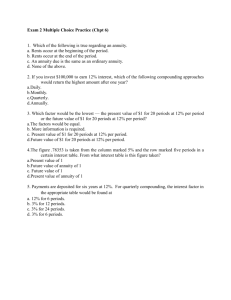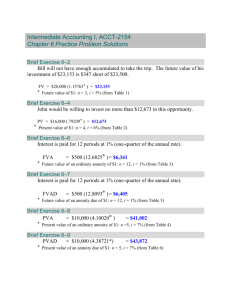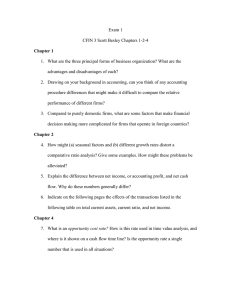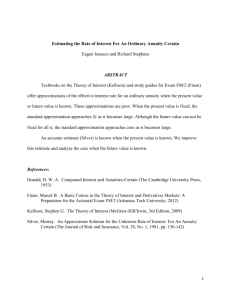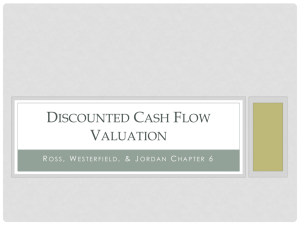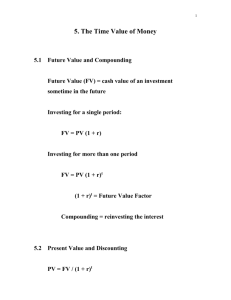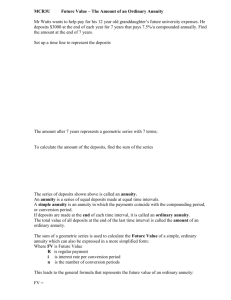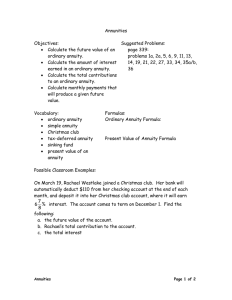TIME VALUE MONEY - TIMELINE VISUALZATION & SHORT EXPLANATION ©
advertisement
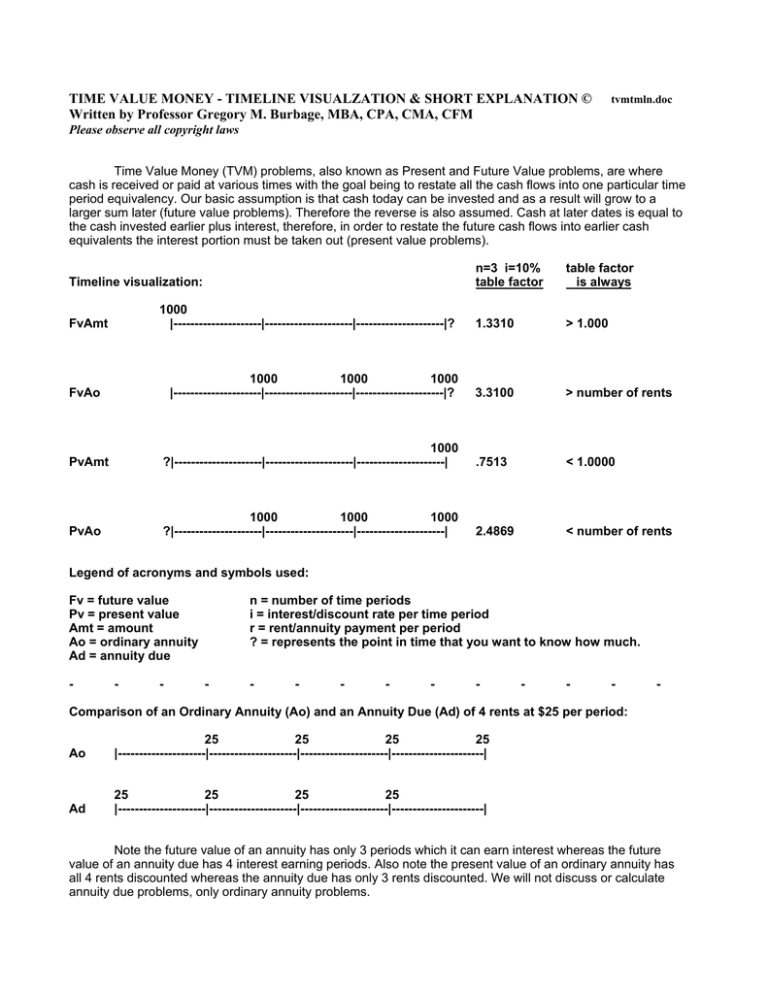
TIME VALUE MONEY - TIMELINE VISUALZATION & SHORT EXPLANATION © Written by Professor Gregory M. Burbage, MBA, CPA, CMA, CFM tvmtmln.doc Please observe all copyright laws Time Value Money (TVM) problems, also known as Present and Future Value problems, are where cash is received or paid at various times with the goal being to restate all the cash flows into one particular time period equivalency. Our basic assumption is that cash today can be invested and as a result will grow to a larger sum later (future value problems). Therefore the reverse is also assumed. Cash at later dates is equal to the cash invested earlier plus interest, therefore, in order to restate the future cash flows into earlier cash equivalents the interest portion must be taken out (present value problems). n=3 i=10% table factor table factor is always 1000 |---------------------|---------------------|---------------------|? 1.3310 > 1.000 1000 1000 1000 |---------------------|---------------------|---------------------|? 3.3100 > number of rents PvAmt 1000 ?|---------------------|---------------------|---------------------| .7513 < 1.0000 PvAo 1000 1000 1000 ?|---------------------|---------------------|---------------------| 2.4869 < number of rents Timeline visualization: FvAmt FvAo Legend of acronyms and symbols used: Fv = future value Pv = present value Amt = amount Ao = ordinary annuity Ad = annuity due - - - n = number of time periods i = interest/discount rate per time period r = rent/annuity payment per period ? = represents the point in time that you want to know how much. - - - - - - - - - - - Comparison of an Ordinary Annuity (Ao) and an Annuity Due (Ad) of 4 rents at $25 per period: Ao 25 25 25 25 |---------------------|---------------------|---------------------|----------------------| Ad 25 25 25 25 |---------------------|---------------------|---------------------|----------------------| Note the future value of an annuity has only 3 periods which it can earn interest whereas the future value of an annuity due has 4 interest earning periods. Also note the present value of an ordinary annuity has all 4 rents discounted whereas the annuity due has only 3 rents discounted. We will not discuss or calculate annuity due problems, only ordinary annuity problems.
